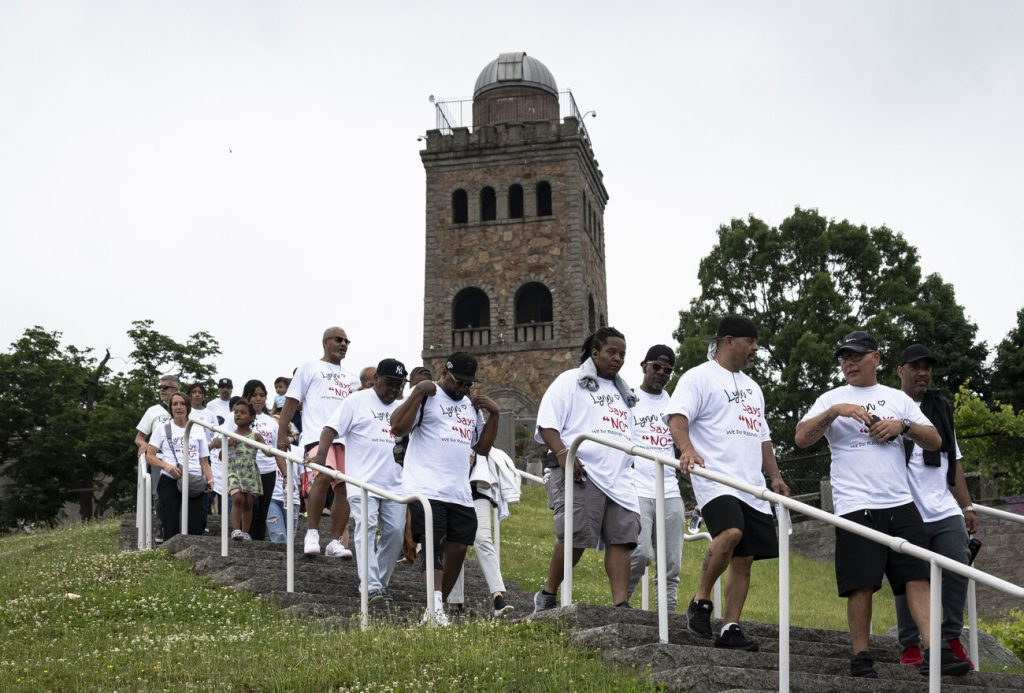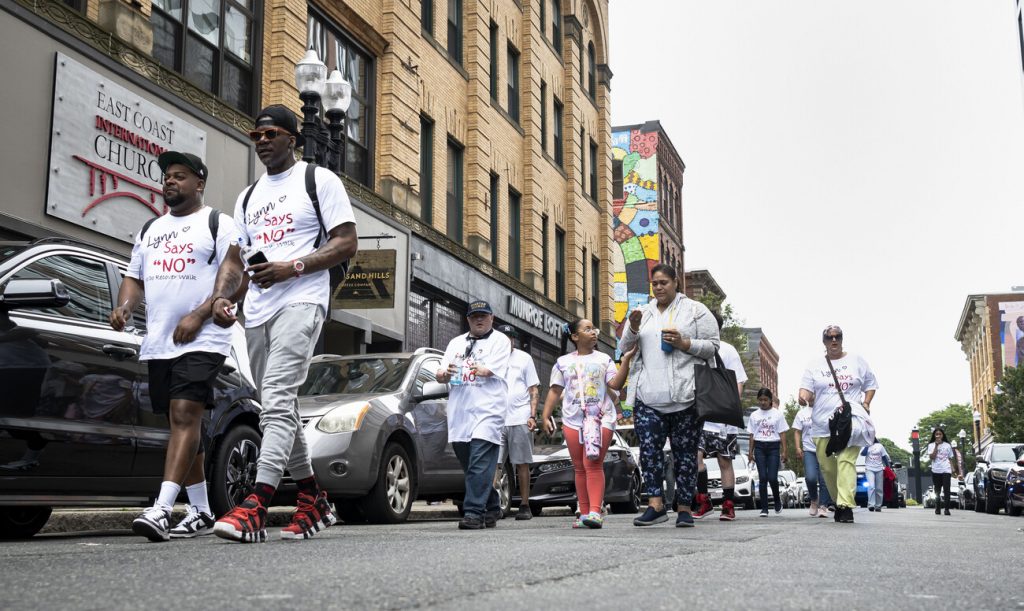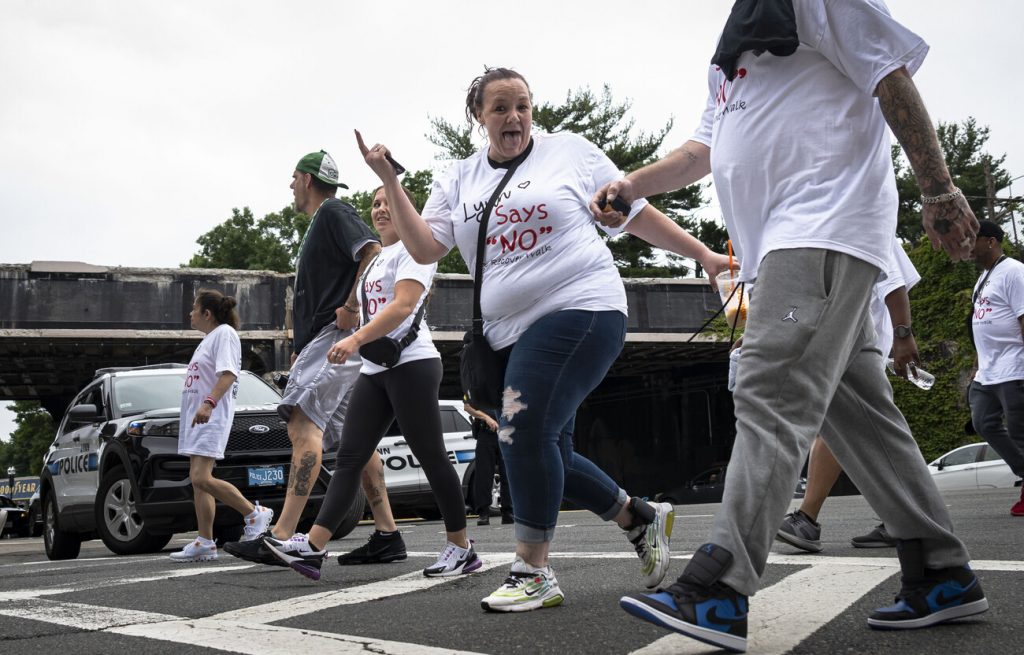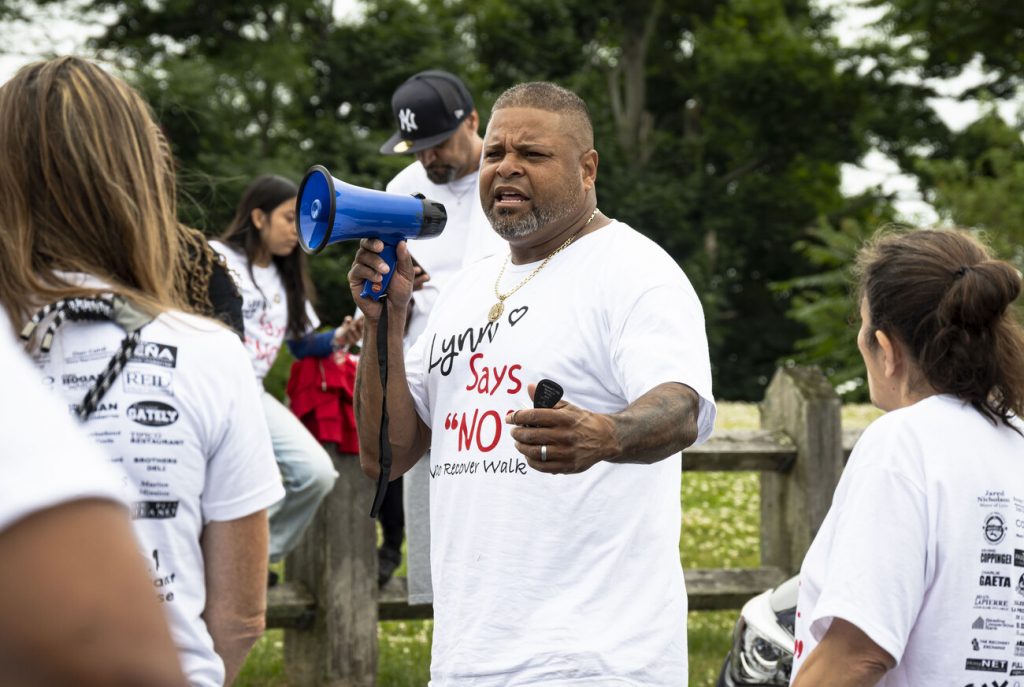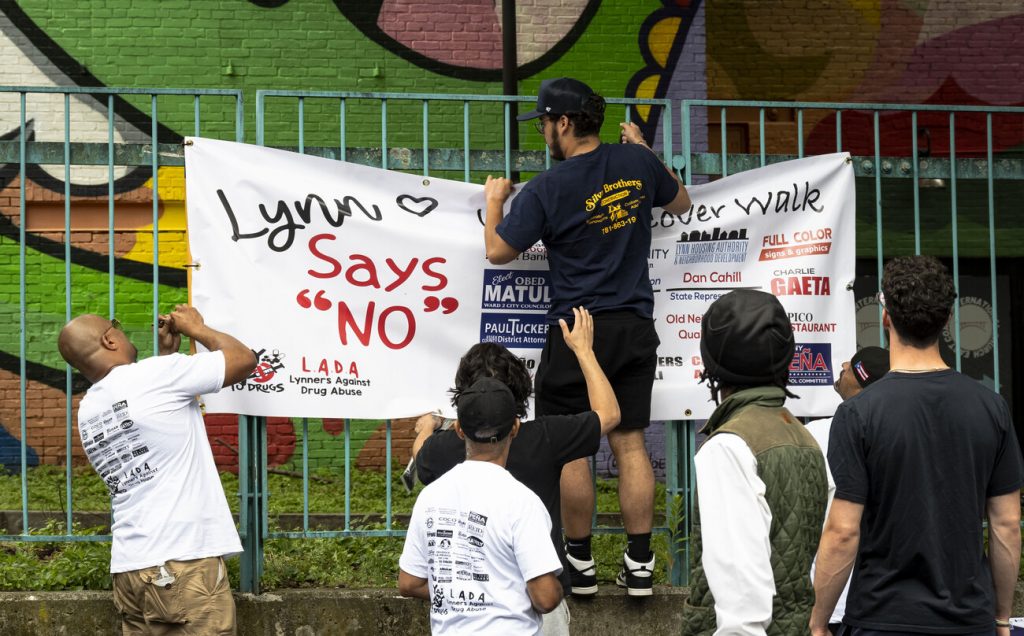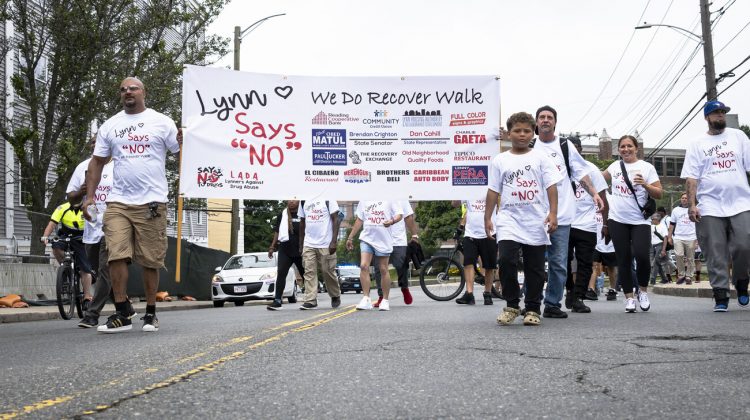LYNN—The third annual Lynners Against Drug Abuse Walk brought together local officials and members of the community to raise awareness of the resources available for those struggling with addiction.
Despite a gloomy day with scattered rain, families in “Lynn says no” t-shirts started at High Rock Tower and ended at Munroe Street for a 2 and half hour walk.
School committee member Lennin Peña, who founded and organized the walk, said he hopes the walk continues to bring light to the work that is constantly being done in the community to help those that are struggling with addiction.
Peña himself said he is a recovering addict and during the week he hosts meetings at YMCA, makes visits to the jails and halfway homes.
He said his hope is to shed as much light on the resources as possible, not just those that are available in school but through community efforts, adding,“ When you give anyone the proper support, they can become productive members of society.”
During the walk, a vigil was held for Lulu Jean, who died of an overdose in 2022 by a mural that is painted in her memory. Pena said she “really inspired her peers and us during the first walk.”
Essex County Sheriff Kevin Coppinger was also awarded the first annual Gabriel Taylor Award.
According to Peña, Taylor was a recovering addict who “set the tone” for long term recovery in Lynn. Taylor became a minister and expanded his work to help those with substance use disorder recover across the state and nation.
Referring to Coppinger, Peña said, “I believe the work that he’s doing is really helping combat the stigma [against addiction] and also help meet people where they’re at with addiction.”
Peña specifically noted Coppinger’s Supporting Transitions and Reentry (STAR) Program.
Peña said the recent data showing opioid overdose deaths decreased by 40% in Lynn was heartening, but the number of people the community is losing to the opioid epidemic is still tragically high, and the data doesn’t account for the other substances people with substance use disorders could be at risk of overdosing from, including alcohol and other Class B drugs such as heroine and cocaine.
“We still have a long way to go,” he said.
